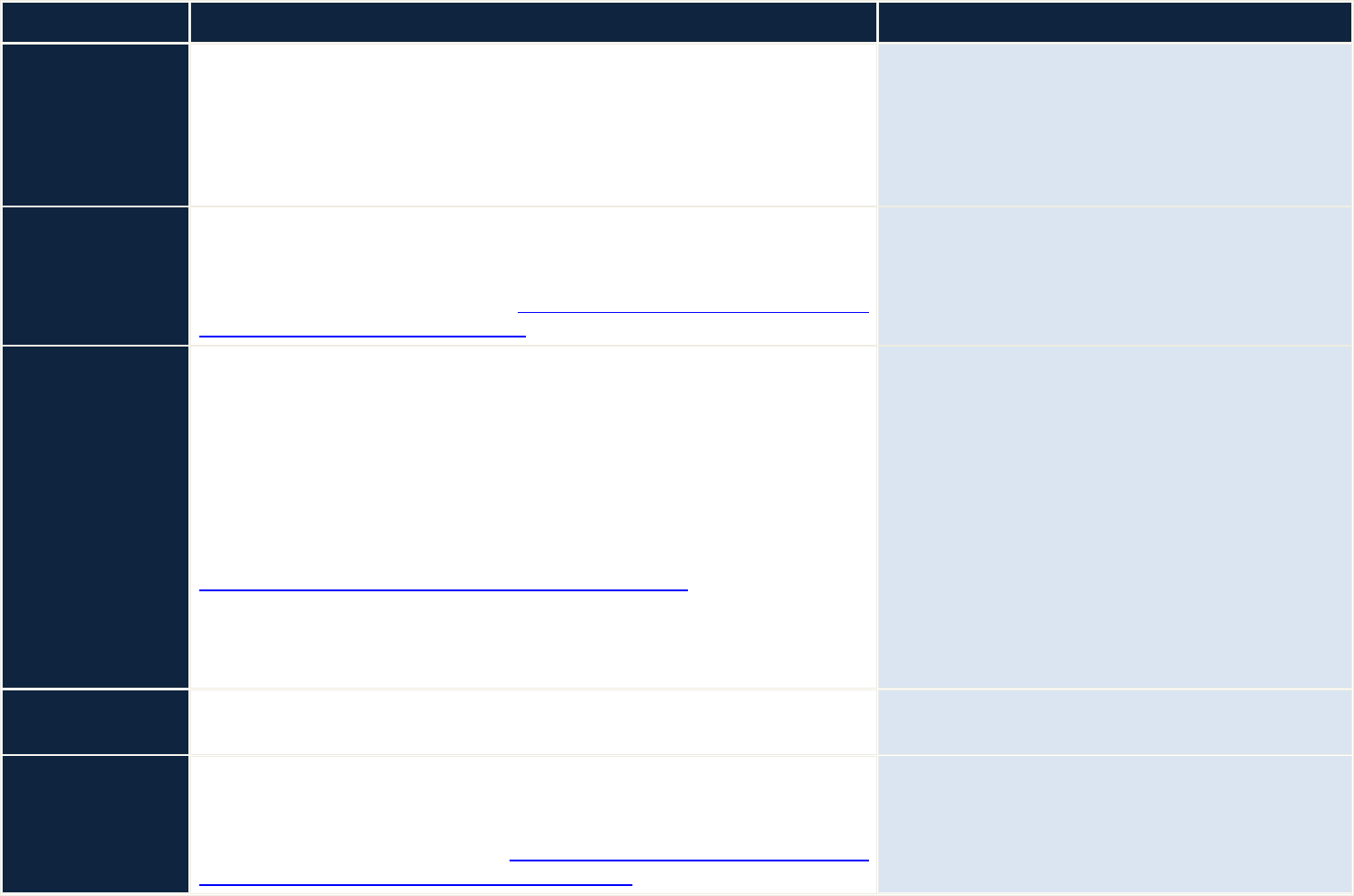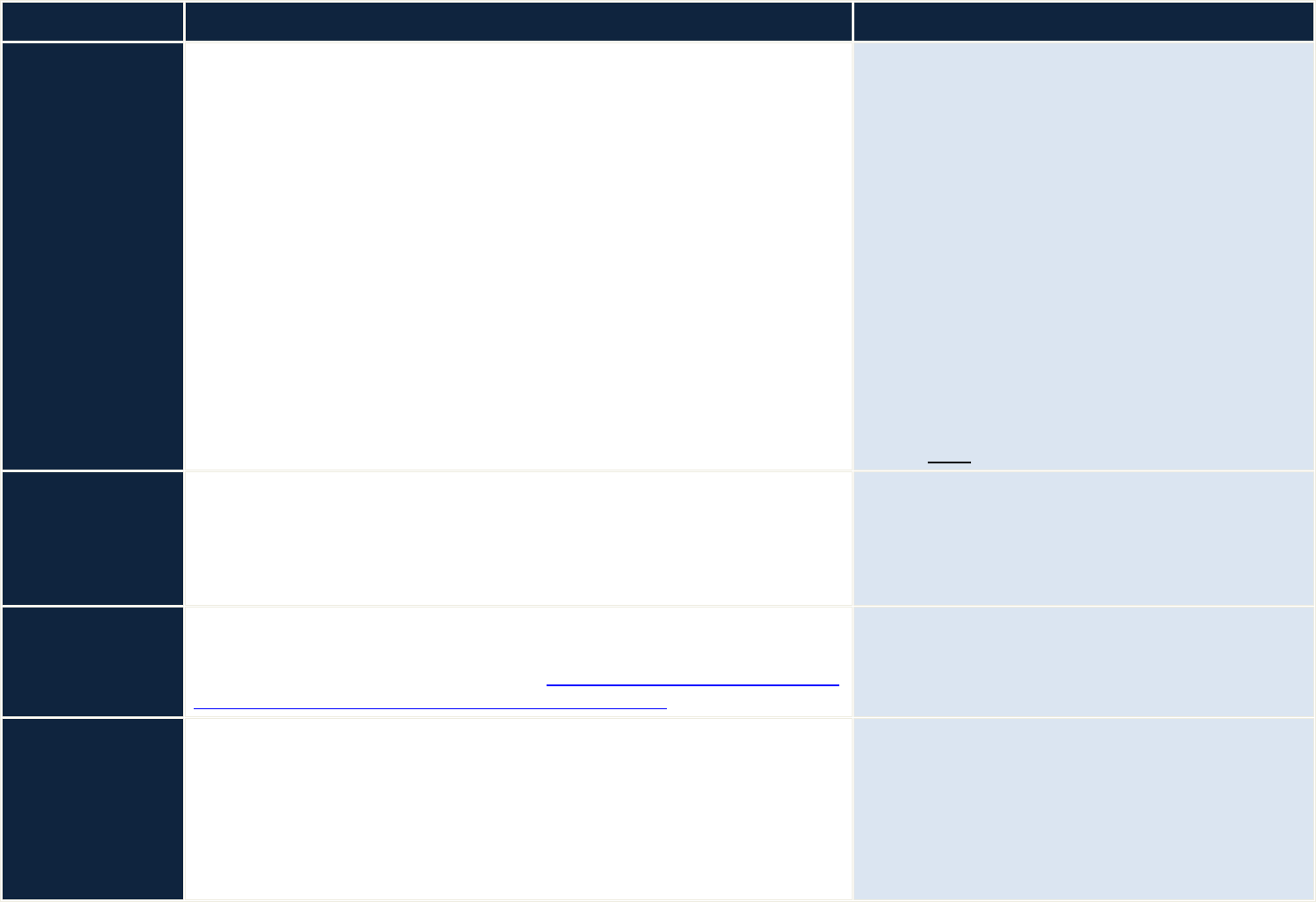
WORK PRODUCT OF MATTHIESEN, WICKERT & LEHRER, S.C. Page 1 Last Updated 1/13/22
MATTHIESEN, WICKERT & LEHRER, S.C.
Hartford, WI ❖ New Orleans, LA ❖ Orange County, CA
❖ Austin, TX ❖ Jacksonville, FL ❖ Boston, MA
Phone: (800) 637-9176
gwickert@mwl-law.com
www.mwl-law.com
PAYMENT OF SALES TAX AFTER VEHICLE TOTAL LOSS IN ALL 50 STATES
Approximately 12% to 14% of all accidents result in a total loss, a number which has been trending upward since 2002. Insurance companies faced with first-party claims
on policies are responsible for paying the actual cash value (ACV) or market value of an insured’s vehicle so the insured can replace it with a similar vehicle. In addition,
they may also be responsible for other costs associated with purchasing a new vehicle, such as sales tax, title, and vehicle registration. Approximately two-thirds of the
states require insurance companies to pay for the sales tax after an insured replaces a crashed vehicle with a new or used one. However, that doesn't necessarily mean
insurers in those states are going to offer to pay sales tax up front. Nor does it mean insurers in states that don’t require those reimbursements will refuse to pay.
Insurers will generally reimburse for those costs on the total loss settlement for an insured’s original vehicle, not the replacement vehicle. For example, if the insured
receives $5,000 from the insurer for its old vehicle and uses that money toward the purchase of a new vehicle for $20,000, the insurance company might be responsible
for payment of sales tax on the $5,000, but not the $20,000. Frequently, the requirement to pay sales tax after a total loss is discussed within a state’s unfair claim
settlement practices laws and/or regulations.
A “total loss” occurs when the insured property is totally destroyed or is damaged in such a way that it can be neither recovered nor repaired for further use, or the
insured is irretrievably deprived of it. Put another way, a vehicle is considered a total loss when the cost to repair it and return it to its pre-loss condition is greater than
the pre-accident value of the vehicle. In some states, when a vehicle’s repair costs exceed a certain percentage of its ACV, it is deemed a total loss. In most, but not all
cases, a total loss vehicle is more expensive to repair than the vehicle’s ACV. Insurance companies also consider whether repairs can be safely completed on the vehicle.
Other factors that insurance companies take into consideration are the vehicle’s year, make, model, mileage, physical wear and tear, and extent of damage caused in
the accident. When and whether a vehicle involved in a collision is “totaled” for first-party insurance purposes or for purposes of handling salvage and branding titles of
vehicles which are “salvage” are two different but related concepts and practices within the insurance industry which are often conflated. A chart entitled “Automobile
Total Loss Thresholds In All 50 States” can be found HERE.
There are two types of claims which can be made following a total loss accident, first-party and third-party, both of which are discussed in this chart.
FIRST-PARTY CLAIMS
These are collision insurance claims made by the vehicle owner/policyholder against his own insurance company to recover an insurance payment under the terms of
the policy. First-party claim payments are governed by applicable policy language. The amount of the payment depends on the policy but could be the ACV or
Replacement Cost Value (RCV) in some cases. It might also include applicable state fees and sales tax. In most states, the maximum that will be paid for a totaled vehicle
will be the amount necessary to replace the vehicle with a comparable used vehicle (plus sales tax, title and registration fees). This is referred to as the vehicle’s ACV.

WORK PRODUCT OF MATTHIESEN, WICKERT & LEHRER, S.C. Page 2 Last Updated 1/13/22
An exception to this rule would be if the policy provides for RCV endorsement as part of the Collision and Comprehensive Coverage. Terms to be familiar with in first-
party insurance claims include:
Actual Cash Value (ACV): A measure insurance companies use when deciding how much to pay for a damaged vehicle. It is also sometimes referred to as “Actual
Cost Value.” It’s commonly defined as the cost of replacing the insured property, less depreciation for age, wear and tear. (“depreciated replacement cost”). Some
courts have held that ACV is equal to FMV, rather than the depreciated replacement cost.
Replacement Cost Value (RCV): This is the amount of money necessary to purchase the same or similar product at today’s prices, even if it’s more than the insured
paid for the product originally. With replacement cost coverage, many insurance companies will pay the ACV of an item and require the insured to submit a receipt
for the new item before paying you the remainder. “Replacement cost insurance” is optional additional coverage that may be purchased for casualty insurance to
insure against the possibility that the improvements will cost more than the ACV and that the insured cannot afford to pay the difference.
Fair Market Value (FMV): This is the reasonable sales price which a willing buyer and seller, knowing comparable prices in the market and knowing all relevant
facts related to the subject property being sold, would agree to. Three well-recognized guides to appraisal have evolved, all of which take the property’s pre-loss
physical depreciation into account: (1) the cost approach; (2) the comparable sales approach; and (3) the income or economic approach.
Whether or not to include sales tax in a first-party claim payment has been closely looked at in recent years. Sixteen states (AZ, CT, CA, CO, IL, KY, MD, NE, NJ, NV, OH,
OK, PA, VA, WA, and WI) have insurance commissioners/departments which have cited insurers for failing to include or properly calculate tax on their auto claim
payments. Most states do provide some guidance as to whether sales tax (possibly including title and registration fees) should be included in the payment of auto total
loss claims. However, many others (DE, DC, ID, LA, MA, MI, MT, NH, NM, NC, NE, TX, and WY) remain silent regarding whether, when, and in what amounts sales tax
must be paid when settling claims on auto total losses.
THIRD-PARTY CLAIMS
“Third-party claims” are auto liability claims made by the owner of a damaged vehicle against a third-party tortfeasor (person other than the insured and insurer) or his
liability insurance carrier for negligently causing damage to the owner’s vehicle. Third-party property damage recovery is governed by applicable state tort damage laws
and varies from state to state. Whether sales tax can be recovered in tort from a third party depends on the tort and damages laws of the state(s) involved. The third-
party liability insurance company will be responsible for damages caused by its insured. The extent of those damages depends on the damages law of the state(s) involved
as well as possible unfair claims settlement practices laws and/or regulations which may include such third-party claims. First-party RCV insurance claim payments cannot
be recovered as damages in third-party subrogation cases because the default rule for measuring direct damages from partial destruction of personal property is either
the reasonable cost of repairs or the difference in the market value immediately before and immediately after the damage to such property at the place where the
damage was occasioned. J & D Towing, LLC v. Am. Alternative Ins. Corp., 478 S.W.3d 649 (Tex. 2016). For both real and personal property losses, the general rule of
recovery in many jurisdictions is that a property owner can recover the cost of replacement, repair, or restoration of property, unless the damage is permanent, and the
restoration cost will exceed the diminution in the fair market value of the property, in which case the damages are limited to the diminution in fair market value. In other
jurisdictions, the damages rule allows recovery of the difference between the FMV of the property before the loss less the FMV of the property immediately after the
loss.
NOTE: On occasion, damaged property does not have a typical “market” in which such items are bought and sold, calculating damages becomes much more complicated
and confusing. Property such as municipal utility poles, signs, school buildings, landmarks, statues, etc., have a “service value” (a/k/a “use value”), but have no traditional
market to aid in determining the damages owed by someone who negligently damages such property. Intrinsic value is the reasonable value of property to the owner in
the condition the property was in when it was damaged, excluding any fanciful or sentimental consideration. Trinkets, etchings, books, pets, family documents,
household furniture, jewelry, silverware, family records, clothing, and personal effects are examples of property that do not have a realistic FMV because they are not

WORK PRODUCT OF MATTHIESEN, WICKERT & LEHRER, S.C. Page 3 Last Updated 1/13/22
easily bought or sold on the market. Instead, they have an artistic or intrinsic value. Sentimental value is value over and above any market value or intrinsic value a piece
of personal property might have. Examples of such property include antiques, heirlooms, wedding memorabilia, photographs, handicrafts, and trophies, etc., although
almost anything could have sentimental value. For a chart showing the applicable state laws in all 50 states regarding damage to property without traditional market
value, see HERE. This chart, however, concerns itself primarily with the recovery of sales taxes in first-party and third-party claims.
SALES TAX EXEMPTIONS: It should be noted that most states provide vehicle sales tax exemptions for a variety of vehicles, depending on their intended uses – including
“commercial” vehicles. For example, Texas provides for sales tax exemptions for Church and Religious Societies, Consular Officers and Employees, Driver Training
Vehicles, Farm (Ranch) Exemptions for Specially Modified Motor Vehicles Used on a Farm or Ranch, Non-Exempt Vehicles Used on a Farm or Ranch, Farm Trailers, Farm-
Use Vehicles, Agricultural Tax Exemptions, Trailers Used for Timber Operations, Interstate Motor Vehicles, Licensed Child-Care Facilities, Nonprofit Organizations,
Orthopedically Handicapped Person, Disabled Veterans, or Former Prisoners of War, Public Agency, Lease to a Public Agency, License Plates Contractors, Other
Organizations Exempt by Statute, Federal Organizations, State Organizations, Volunteer Fire Department Vehicles Transported Out of State, Hydrogen-Powered Vehicles,
and Citrus Pest and Disease Management Corporation (Agriculture Code Chapter 80). Recovery of sales tax, whether first-party or third-party, would likely depend on
whether vehicle sales tax is going to be incurred in the first place. If no sales tax will be owed on the repurchase of a replacement vehicle, it is likely that no sales tax will
be owed on either first-party or third-party claims. However, such situations must be looked at on a case-by-case basis taking into consideration the detailed nuances of
the laws of damages and taxation in a particular state.
It should be remembered that the adjustment and/or payment of insurance claims, first-party or third-party, are dependent not only on state law and/or regulations, but
also on policy language. No decision regarding the payment of a claim should be made without consulting your policy terms and conditions as well as legal counsel. This
chart is simply a shorthand rendition of available (or unavailable) law on the subject, and is not a substitute for coverage and or claims legal advice.
STATE
FIRST-PARTY CLAIMS
THIRD-PARTY CLAIMS
ALABAMA
When the insurance policy provides for the adjustment and settlement of first-
party auto total losses based on ACV or replacement with another of like kind and
quality, the insurer must pay all applicable taxes, license fees, and other fees. Ala.
Admin. Code § 482-1-125-.08.
Where policy provides that “If we pay for loss in money, our payment will include
the applicable sales tax”, sales tax is owed. Lary v. Valiant Ins. Co., 864 So.2d 1105
(Ala. Civ. App. 2002), overruled by Ex parte S & M, LLC, 120 So.3d 509 (Ala. 2012).
No applicable statute, case law, or regulation governing
recovery of sales tax.

WORK PRODUCT OF MATTHIESEN, WICKERT & LEHRER, S.C. Page 4 Last Updated 1/13/22
STATE
FIRST-PARTY CLAIMS
THIRD-PARTY CLAIMS
ALASKA
No state sales tax in Alaska. When the insurance policy provides for the adjustment
and settlement of first-party auto total loss based on ACV or replacement with
another of like kind and quality, the insurer must offer a comparable replacement
vehicle with all applicable taxes, license fees, and other fees paid. Alaska. Admin.
Code § 26.080.
If insured wants to retain the salvage following a total loss and seeks to settle on
an ACV basis, the correct calculation for the total loss is based on the actual cost to
purchase a comparable vehicle, including all applicable taxes, license fees,
destination or delivery charges, and other fees incident to transfer of ownership.
This calculation is not contingent on salvage, nor does calculation of ACV change if
the insured seeks to keep the salvage rather than have the salvage turned over to
the insurer for disposition. Bulletin 93-8, 1993 WL 13563685 (AK INS BUL), 2.
No applicable statute, case law, or regulation governing
recovery of sales tax.
ARIZONA
All insurance policies must make prompt, fair, and equitable settlements applicable
to both first and third-party total loss claims. This includes either (1) offering a
replacement auto with all applicable “taxes, license fees, and other fees” paid, or
(2) making cash settlement which includes all applicable taxes, license fees, and
other fees. Ariz. Admin. Code § R20-6-801(H)(1).
Third-party insurers must follow the same rules as first-
party insurers. Any deviation from those rules must be
supported by documentation giving particulars of the
vehicle’s condition, and all deviations must be
“measurable, discernible, itemized, and specified as to
dollar amount.” Ariz. Admin. Code § R20-6-801(H)(1)(C).
ARKANSAS
When the insurance policy provides for the adjustment and settlement of a first-
party auto total loss, the insurer must either (1) offer a replacement auto with all
applicable “taxes, license fees, and other fees” paid, or (2) make a cash settlement
which includes all applicable taxes, license fees, and other fees. If the insurer
deviates from the methods above, they must include an itemized list stating the
amount of the claim attributable to the value of the auto and the amount
attributable to the sales tax. Ark. Admin. Code § 054.00.43-10(A).
Third-party insurers must follow the same rules as first-
party insurers. Any deviation from those rules must be
supported by documentation giving particulars of the
vehicle’s condition, and all deviations must be
“measurable, discernible, and itemized as to dollar
amount.” Ark. Admin. Code § 054.00.43-10(A)(3).

WORK PRODUCT OF MATTHIESEN, WICKERT & LEHRER, S.C. Page 5 Last Updated 1/13/22
STATE
FIRST-PARTY CLAIMS
THIRD-PARTY CLAIMS
CALIFORNIA
Insurer must (1) offer a cash settlement based upon the actual cost of a
“comparable auto” including all applicable taxes and other fees, or (2) offer a
replacement comparable auto including all applicable taxes, license fees, and other
fees. Cal. Code of Regs. Tit. 10 § 2695.8(b).
Pro-rata refund of Vehicle License Fee (VLF) portion of the registration fees (in lieu
of property tax) is required when one (1) vehicle is stolen and not recovered within
60 days after police report, Cal. Rev. and Tax. Code § 10902; (2) total loss, Cal. Veh.
Code § 11515 & Cal. Rev. and Tax. Code § 10902, or (3) vehicle completely stripped
or burned.
When a carrier elects to repair the car to its pre-accident condition, it’s not required
to pay for any loss of value to the vehicle, which can occur after a seriously damaged
vehicle is fully repaired. Carson v. Mercury Ins. Co., 148 Cal. Rptr. 3d 518 (Cal. App.
2012).
Third-party total loss claims are evaluated in the same
way as first-party claims. Cal. Code of Regs. Tit. 10 §
2695.8(b)(6). It provides:
(6) Subsection 2695.8(b) applies to the evaluation of third
party automobile total loss claims, but does not change
existing law with respect to the obligations of an insurer
in settling such claims with a third party.
COLORADO
Insurer shall pay title fees, sales tax, and any other transfer or registration fee
associated with the total loss of a motor vehicle. C.R.S. § 10-4-639.
Third-party total loss claims are evaluated in the same
way as first-party total loss claims. C.R.S. § 10-4-639.
CONNECTICUT
Insurer must pay an amount equal to (A) the settlement amount on such vehicle
plus, (B) whenever the insurer takes title, an amount determined by multiplying the
settlement amount by the current tax rate percentage. C.G.S.A. § 38a-816.
No authority requiring payments of sales tax to third-
party total loss claims. Insurers have no duty of good
faith to third parties since their relationship is adversarial
and not fiduciary in character. Asmus Elc., Inc. v. G.M.K.
Contractors, LLC, WL 758126 (2005); Sherrick v.
Belanger, 43 Conn. L. Rptr. 878 (2007).
DELAWARE
No state sales tax in Delaware. No applicable statute, case law, or regulation
governing recovery of sales tax. 21 Del. C. § 2118 (A)(4) describes only the following
benefits: “Compensation for damage to the insured motor vehicle, including loss
of use of the motor vehicle, not to exceed the actual cash value of the vehicle at
the time of the loss and $10 per day, with the maximum payment of $300, for loss
of use of such vehicle.” 21 Del. C. § 2118 (A) (4). Look at policy language.
No applicable statute, case law, or regulation governing
recovery of sales tax.
DISTRICT OF
COLUMBIA
No applicable statute, case law, or regulation governing recovery of sales tax.
However, an insured can recover damages suffered as a result of being without a
vehicle for a reasonable amount of time necessary to replace or repair the damaged
vehicle. Gamble v. Smith, 386 A.2d 692, 694 (1978). Look at policy language.
No applicable statute, case law, or regulation governing
recovery of sales tax.

WORK PRODUCT OF MATTHIESEN, WICKERT & LEHRER, S.C. Page 6 Last Updated 1/13/22
STATE
FIRST-PARTY CLAIMS
THIRD-PARTY CLAIMS
FLORIDA
When the insurance policy provides for the adjustment and settlement of first-
party auto total losses based on ACV or replacement with another of like kind and
quality, the insurer must pay sales tax. Any deviation from this method must be
supported by documentation. The insurer must include an itemized list stating the
amount of the claim attributable to the value of the auto and the amount
attributable to the sales tax. F.S.A. § 626.9743.
Third-party insurers must follow the same rules as first-
party insurers. Any deviation from those rules must be
supported by documentation giving particulars of the
auto condition, and all deviations must be “measurable,
discernible, itemized and specified as to dollar amount.”
F.S.A. § 626.9743(5)(C).
GEORGIA
Insurer must (1) offer a cash equivalent settlement based upon the ACV of a
“comparable auto” including all applicable taxes and other fees, or (2) offer a
replacement auto including all applicable taxes, license fees and other fees. Ga.
Comp. R. & Regs. § 120-2-52-.06.
No applicable statute, case law, or regulation governing
recovery of sales tax.
HAWAII
Insurer must (1) offer a cash settlement based upon the ACV of a “comparable
auto”, if within 30 days the insured purchases a new car, the insurer must
reimburse for excise tax and ownership fees, or (2) offer a replacement comparable
auto including all excise taxes and ownership fees. Haw. Rev. Stat. § 431:10C-312.
No applicable statute, case law, or regulation governing
recovery of sales tax. However, courts have applied
various measures of damages to personal property. All
these measures are merely guides to common sense
aimed to ultimately fully compensate the injured party.
The assessment of property damage must rest on its own
facts and circumstances. Richards v. Kailua Auto Mach.
Serv., 10 Haw. App. 613, 623, 880 P.2d 1233, 1238
(1994).
IDAHO
No applicable statute, case law, or regulation governing recovery of sales tax.
However, Idaho Department of Insurance’s website states that an insured can
recover sales tax, title fees, and release of liability fees.
http://www.doi.idaho.gov/consumer/claim_faq.aspx
No applicable statute, case law, or regulation governing
recovery of sales tax. A claim against an insurer for
breach of duty of good faith is only available to first-party
insured parties. Idaho State Ins. Fund v. Van Tine, 132
Idaho 902, 908, 980 P.2d 566, 572 (1999).

WORK PRODUCT OF MATTHIESEN, WICKERT & LEHRER, S.C. Page 7 Last Updated 1/13/22
STATE
FIRST-PARTY CLAIMS
THIRD-PARTY CLAIMS
ILLINOIS
Insurer must (1) offer a cash settlement based upon the ACV of a “comparable
auto”, If within 30 days the insured buys or leases a new vehicle, the carrier must
pay the applicable sales tax, transfer, and title fees in an amount equivalent to the
value of the total loss vehicle, or (2) offer a replacement comparable auto including
all applicable taxes, license fees, and other fees, if the insured purchases a vehicle
with a market value less than the amount previously settled upon, the company
must pay only the amount of sales tax actually incurred and include transfer and
title fees. Ill. Admin. Code tit. 50, § 919.80(C).
Exhibit A to § 919 states: “If within 30 days of a cash settlement, you can prove that
you have purchased another vehicle, the company must pay the applicable sales
tax, transfer and title fees in an amount equivalent to the value of the total loss
vehicle. If you purchase a vehicle with a market value less than the amount
previously settled upon, the company must pay you only the amount of sales tax
that you actually incurred and include transfer and title fees.”
No applicable statute, case law, or regulation governing
recovery of sales tax. In a third-party claim, you do not
have a direct contract with the party you are seeking to
recover from and their primary obligation is to their own
policyholder.
http://insurance.illinois.gov/autoinsurance/auto_own_
claim.pdf; Cramer v. Ins. Exch. Agency, 174 Ill.2d 513,
531, 675 N.E.2d 897, 906 (1996).
INDIANA
Insurer must pay sales tax in addition to the fair market value of the totaled vehicle.
This is necessary for the insured to be “made whole” for the loss. Sales tax must be
paid at the time of compensating the insured for the loss of the vehicle. Indiana
Insurance Bulletin 82, 2/25/94. In 2014, Indiana Dept. of Ins. General Counsel Tina
Korty explained that, “The Department views payment of sales tax to be a
necessary component of a fair and equitable settlement.” 1/9/15 e-mail to Gary
Wickert.
The Indiana Dept. of Ins. General Counsel says the
position of the Department is that of Indiana Insurance
Bulletin 82. Indiana law requires insurers to effectuate
prompt, fair, and equitable settlement of claims. I.C. §
27-4-1-4.5. The Department views payment of sales tax
to be a necessary component of a fair and equitable
settlement. No case law to support, however.
IOWA
Insurer may (1) offer a replacement auto that is at least comparable including all
applicable taxes, license fees, or other fees, or (2) offer a cash settlement based on
the ACV of a comparable vehicle including all applicable taxes, license fees, or other
fees. Iowa A.D.C. § 191-15.43(507B).
No applicable statute, case law, or regulation governing
recovery of sales tax. The Supreme Court has simply said
that “When the motor vehicle is totally destroyed or the
reasonable cost of repair exceeds the difference in
reasonable market value before and after the injury, the
measure of damages is the lost market value plus the
reasonable value of the use of the vehicle for the time
reasonably required to obtain a replacement.” Long v.
McAllister, 319 N.W.2d 256 (Iowa 1982).

WORK PRODUCT OF MATTHIESEN, WICKERT & LEHRER, S.C. Page 8 Last Updated 1/13/22
STATE
FIRST-PARTY CLAIMS
THIRD-PARTY CLAIMS
KANSAS
Insurer may (1) offer owner a comparable replacement vehicle, “with all applicable
taxes, license fees, and other fees incident to transfer of evidence of ownership ...”
or (2) pay owner a cash settlement equal to the actual cost required to purchase a
comparable vehicle “including all applicable taxes, license fees and other fees
incident to transfer of evidence of ownership ...” Sales tax is calculated by
multiplying the ACV of the comparable vehicle by state and local income tax. Kan.
Admin. Regs. § 40-1-34.
http://www.ksinsurance.org/department/LegalIssues/bulletins/2013-1.pdf
Kansas Insurance Department Bulletin 2013-01 states
that insurers have an obligation to pay sales tax and fees
for all total loss claims.
http://www.ksinsurance.org/department/LegalIssues/b
ulletins/2013-1.pdf
KENTUCKY
If the policy provides for the settlement of first-party auto total loss, the insurer
may elect to either (1) offer a replacement auto that is at least comparable
including all applicable taxes, license fees, or other fees, or (2) offer a cash
settlement based on the actual cost of a comparable vehicle including all applicable
taxes, license fees, or other fees. 806 Ky. Admin. Regs. § 12:095.
806 Ky. Admin. Regs. § 12:095 defines “claimant” as a
first-party claimant, a third-party claimant, or both.
Bulletin 81-DM-007, 1981 states “it is necessary for sales
tax to be included in establishing the value of damage
when such tax is obviously an obligation of the claimant
upon replacement of total losses.” However, no other
applicable statute or case law.

WORK PRODUCT OF MATTHIESEN, WICKERT & LEHRER, S.C. Page 9 Last Updated 1/13/22
STATE
FIRST-PARTY CLAIMS
THIRD-PARTY CLAIMS
LOUISIANA
Insured truck owner was not entitled to recover sales tax on vehicle under terms of
the policy as result of his truck being stolen and/or damaged, where policy provided
for “actual cash value” of the damaged property; fact that insured paid sales tax on
the truck did not increase its value. Clark v. Clarendon Ins. Co., 841 So.2d 1039 (La.
App. 2003).
State Farm’s insured suffered total loss to vehicle. State
Farm paid insured sales tax and sought to subrogate the
damages from the tortfeasor. The third party refused to
reimburse State Farm for the sales tax. The Supreme
Court denied State Farm’s claim, holding that, despite §
2315, below, State Farm was subrogated only to those
rights its insured had, and only to the extent of first-party
coverage it provided. Section 1830 says the subrogee
cannot recover more than the extent of its performance
under the policy. The State Farm policy did not obligate
it to pay sales tax, so it could not recover sales tax from
the tortfeasor. State Farm Mut. Auto. Ins. Co. v.
Berthelot, 732 So.2d 1230 (La. 1999).
Vehicle owner can recover sales tax. If the first-party
policy requires payment of sales tax, such tax may be
recovered in third-party action by subrogated insurer.
Section 2315 (“Liability For Acts Causing Damages”) is
known as the “fountainhead” of tort law in Louisiana,
and as of a 2001 amendment, now provides in part,
“Damages shall include any sales taxes paid by the owner
on the repair or replacement of the property damaged.”
MAINE
“All contracts of motor vehicle casualty insurance ... shall provide coverage for the
value of the sales tax credit that would have been available upon trade thereof at
the highest book value at the time of loss or destruction of the insured vehicle.” 24-
A M.R.S.A. § 2907.
No applicable statute, case law, or regulation governing
recovery of sales tax.
MARYLAND
Insurer may (1) offer a replacement auto that is substantially similar (does not
address if sales tax and fees are included). Md. Code Regs. § 31.15.12.07, or (2)
offer a cash settlement based on the actual cost of a substantially similar vehicle
including all applicable taxes and transfer fees. Md. Code Regs. § 31.15.12.04.
Insurers have been cited for refusing to reimburse sales tax on a total loss claim
under Md. Code Ann., Ins. § 27-303 and § 27-304.
Insurer may only offer a cash settlement based on the
actual cost of a substantially similar vehicle including all
applicable taxes and transfer fees. Md. Code Regs. §§
31.15.12.03 and 31.15.12.04. MD Ins. Order 11-25-80.

WORK PRODUCT OF MATTHIESEN, WICKERT & LEHRER, S.C. Page 10 Last Updated 1/13/22
STATE
FIRST-PARTY CLAIMS
THIRD-PARTY CLAIMS
MASSACHUSETTS
Insurer is only required to pay for the ACV of a vehicle as of the day of the loss, not
the cost to replace it. 211 Mass. Code Regs. § 133.05.
http://www.mass.gov/ocabr/insurance/vehicle/auto-insurance/faq.html#q2.
No applicable statute, case law, or regulation governing
recovery of sales tax.
MICHIGAN
No applicable statute, case law, or regulation governing recovery of sales tax.
No third-party collision litigation allowed due to no fault.
MINNESOTA
If the policy provides for the settlement of first-party auto total loss, the insurer
may (1) offer a comparable and available replacement vehicle including all
applicable taxes, license fees, or other fees, or (2) offer a cash settlement based on
the actual cost of a comparable vehicle including all applicable taxes, license fees,
or other fees. M.S.A. § 72A.201.
No applicable statute, case law, or regulation governing
recovery of sales tax.
MISSISSIPPI
The insurer must pay sales taxes, title fees, or license fees unless the policy
unambiguously excludes this recovery for total loss claims. MS Bulletin 2007-4.
Jay Evey (Mississippi Department of Insurance) states
that MS Bulletin 2007-4 does extend to third parties
based on public policy of making the injured party whole.
No applicable statute, case law, or regulation governing
recovery of sales tax.
MISSOURI
Unless stated in the policy language, an insurer is not required to reimburse for
sales tax. The insured must file a request with the state to have their sales tax
refunded.
https://insurance.mo.gov/Contribute%20Documents/autoclaimbrochure_002.pdf
No applicable statute, case law, or regulation governing
recovery of sales tax.
MONTANA
No state sales tax. No applicable statute, case law, or regulation governing recovery
of sales tax. Mont. Code Ann. § 27-1-306 states that the insured can only recover
the cash value of the vehicle immediately prior to the accident.
No applicable statute, case law, or regulation governing
recovery of sales tax.
NEBRASKA
Insurer must pay sales tax to put the injured party back into the position they were
in before the injury. NE Bulletin CB-49.
Third-party total loss claims are evaluated in the same
way as first-party total loss claims. NE Bulletin CB-49.
NEVADA
Insurer must (1) offer a cash settlement based upon the actual cost of a
“comparable auto” including all applicable taxes and other fees, or (2) offer a
replacement comparable auto including all applicable taxes, license fees, and other
fees. Nev. Admin. Code § 686A.680.
No applicable statute, case law, or regulation governing
recovery of sales tax.
NEW HAMPSHIRE
No state sales tax. No applicable statute, case law, or regulation governing recovery
of sales tax. N.H. A.D.C. Ins. § 1002.15 describes how to determine reimbursement
for total loss claims but does not speak on the topic of sales tax.
No applicable statute, case law, or regulation governing
recovery of sales tax.

WORK PRODUCT OF MATTHIESEN, WICKERT & LEHRER, S.C. Page 11 Last Updated 1/13/22
STATE
FIRST-PARTY CLAIMS
THIRD-PARTY CLAIMS
NEW JERSEY
Insurer must offer a cash settlement based upon (1) average retail of substantially
similar vehicle, (2) a quotation for a substantially similar vehicle from a dealer
located within a reasonable distance, or (3) fair market value, plus applicable sales
tax. N.J. Admin. Code § 11:3-10.4.
The requirements for auto physical damage first-party
claims found in N.J.A.C. §§ 11:3–10.1 through 10.4 shall
also be construed to apply to automobile property
damage third-party claims from the time that liability
becomes reasonably clear. N.J. Admin. Code § 11:2-
17.10.
NEW MEXICO
No applicable statute, case law, or regulation governing recovery of sales tax.
However, New Mexico Public Regulation Commission states that after a cash
settlement, the insurer must reimburse the state’s excise tax, any title fees, and
any registration charges. http://www.nmprc.state.nm.us/consumer-
relations/docs/settlement-total-loss.pdf.
No applicable statute, case law, or regulation governing
recovery of sales tax.
NEW YORK
Insurer is required to reimburse the insured with the ACV. This means either
repairing the damaged item or replacing it with an item substantially identical
including sales tax (sales tax added to the value of the auto prior to the accident
before salvage value is taken). N.Y. Comp. Codes R. & Regs. tit. 11, § 216.6. An
insurer is not required to include transfer or title fees.
http://www.dfs.ny.gov/insurance/ogco2008/rg081013.html.
Third-party insurers must follow the same rules as first-
party insurers. N.Y. Comp. Codes R. & Regs. tit. 11, §
216.0 (Standards for Prompt, Fair and Equitable
Settlement of Motor Vehicle Physical Damage Claims)
states that these claim practice rules apply to both first
and third-party claims.
On 5/1/02, the N.Y. Office of General Counsel issued a
formal opinion which says that in adjusting a third-party
claim for a total loss of a vehicle, the third-party insurer
must comply with the requirements in N.Y. Comp. Codes
R. & Regs. tit. 11, § 216.7(c)(1), (3), (4) (1999), which
specifies how the insurer’s minimum offer, subject to
applicable deductions, should be computed.
NORTH CAROLINA
No applicable statute, case law, or regulation governing recovery of sales tax.
No applicable statute, case law, or regulation governing
recovery of sales tax.
NORTH DAKOTA
No applicable statute, case law, or regulation governing recovery of sales tax. The
payment on a total loss would be the ACV less the deductible. ACV is defined as an
amount equivalent to the replacement cost of lost or damaged property at the time
of the loss, less depreciation. http://www.nd.gov/ndins/consumers/auto/
http://www.nd.gov/ndins/consumers/auto/glossary/.
No applicable statute, case law, or regulation governing
recovery of sales tax.

WORK PRODUCT OF MATTHIESEN, WICKERT & LEHRER, S.C. Page 12 Last Updated 1/13/22
STATE
FIRST-PARTY CLAIMS
THIRD-PARTY CLAIMS
OHIO
Insurer may (1) offer a replacement of like kind and quality including all applicable
taxes, license fees, or other fees if the insured provides documentation of the
purchase of a replacement auto within 30 days, or (2) offer a cash settlement based
on the ACV of a comparable vehicle including all applicable taxes, license fees, or
other fees. Insurers must only reimburse sales tax for claim amount, not the
replacement vehicle cost. Ohio Admin. Code 3901-1-54.
Ohio Admin. Code 3901-1-54 (C)(3) defines “Claimant”
as a first-party claimant or a third-party claimant. Third-
party insurers must follow the same rules as first-party
insurers.
OKLAHOMA
If the policy provides for the settlement of first-party auto total loss, insurer may
(1) offer a replacement of like kind and quality including all applicable taxes, license
fees, or other fees, or (2) offer a cash settlement based on the ACV of a comparable
vehicle including all applicable taxes, license fees, or other fees. Okla. Stat. Ann. tit.
36, § 1250.8.
No applicable statute, case law, or regulation governing
recovery of sales tax.
OREGON
No state sales tax in Oregon. If the policy provides for the settlement of first-party
auto total loss, insurer may (1) offer a replacement comparable vehicle including
all applicable taxes, license fees, or other fees, or (2) offer a cash settlement based
on the ACV of a comparable vehicle including all applicable taxes, license fees, or
other fees. Or. Admin. R. § 836-080-0240.
Insurer is only required to offer a cash settlement to
third-parties including all applicable taxes, license fees,
or other fees. Or. Admin. R. § 836-080-0240 (14).
PENNSYLVANIA
A total loss is settled based upon the pre-loss fair market value of the damaged
vehicle plus the state sales tax on the cost of a replacement vehicle. 27
Pennsylvania Bulletin 306131; Pa. Code § 62.3 (E)(4).
31 Pa. Code § 146.2 defines “claimant” as a first-party
claimant, a third-party claimant, or both. However, no
other applicable statute, or case law governing recovery
of sales tax.
RHODE ISLAND
When the policy provides for the adjustment and settlement of first-party total
losses, the Insurer may (1) offer a replacement of like kind and quality including all
applicable taxes, license fees, or other fees, or (2) offer a cash settlement based on
the ACV of a comparable vehicle including all applicable taxes, license fees, or other
fees. R.I. Code R. § 11-5-73:8.
R.I. Code R. § 11-5-73:3 defines “claimant” as a first-
party claimant, a third-party claimant, or both. “In order
to fully compensate for the loss to the consumer, the
insurer must include applicable sales tax in its calculation
of settlement value in any total loss claim.”
http://www.dbr.ri.gov/documents/rules/insurance/Insu
ranceRegulation73.pdf.
http://www.dbr.state.ri.us/documents/rules/proposed/
2013-propd73.pdf.

WORK PRODUCT OF MATTHIESEN, WICKERT & LEHRER, S.C. Page 13 Last Updated 1/13/22
STATE
FIRST-PARTY CLAIMS
THIRD-PARTY CLAIMS
SOUTH CAROLINA
Insurers are not required to reimburse for the sales tax unless the policy specifically
states otherwise. Schulmeyer v. State Farm Fire & Cas. Co., 353 S.C. 491, 498, 579
S.E.2d 132, 135 (2003). No applicable statute, case law, or regulation governing
recovery of sales tax.
As of July 1, 2017, owners of new vehicle owe an Infrastructure Maintenance Fee
(IMF) instead of sales tax. Under the new legislation known as the “Roads Bill”, if a
“vehicle or other item that is required to be registered” is purchased or leased and
will be titled and/or registered in North Carolina, the owner will owe an
Infrastructure Maintenance Fee (IMF) instead of sales tax. For dealers, the IMF will
be in the amount of 5% of the gross proceeds of sale price (not to exceed $500).
For private sales of vehicles, the cap is $250. Those who move to South Carolina
with a vehicle that needs to be registered in the state will automatically owe a $250
IMF per vehicle. Those who purchase a vehicle or other item in the state, that will
be registered in a different state, will not need to pay an Infrastructure
Maintenance Fee, but a sales tax instead. Salvage title applications are exempt from
the IMF. S.C. Stat. Ann. § 56-3-627 (A) through (D).
No applicable statute, case law, or regulation governing
recovery of sales tax.
SOUTH DAKOTA
“First-party claims are controlled by the relationship provided by the insurance
contract, so the results depend on the policy language.” E-mail from Frank Marnell
– South Dakota Department of Labor and Regulations. However, no applicable
statute, case law, or regulation governing recovery of sales tax.
“Third-party claims are controlled by tort law and sales
tax is generally payable on third-party total loss claims”.
Email from Frank Marnell – South Dakota Department of
Labor and Regulations. However, no applicable statute,
case law, or regulation governing recovery of sales tax
TENNESSEE
Sales tax is payable on the value of the damaged auto at the time the loss is owed
on all losses. TN Bulletin 9-1-89 (#3).
Third-party insurers must follow the same rules as first-
party insurers. TN Bulletin 9-1-89 (#3).

WORK PRODUCT OF MATTHIESEN, WICKERT & LEHRER, S.C. Page 14 Last Updated 1/13/22
STATE
FIRST-PARTY CLAIMS
THIRD-PARTY CLAIMS
TEXAS
Motor vehicle sale and use tax is not due when insurer takes title to vehicle because
of a total loss. However, motor vehicle sale and use tax is due when the insurer
purchases a replacement vehicle for the insured on a total loss claim. 34 Tex.
Admin. Code § 3.62.
Where a policy provides that in the event of a total loss, the carrier’s liability would
be limited to the “actual cash value of the stolen or damaged property at the time
of the loss, reduced by the applicable deductible ... and by its salvage value if [the
policyholder] or the owner retain[ed] the salvage,” the term “actual cash value”
does not include taxes and fees remitted to the state. Taxes and fees paid by the
buyer to the state are irrelevant to the question of fair market value because those
amounts are not part of the price paid to the seller. Singleton v. Elephant Ins. Co.,
953 F.3d 334 (5
th
Cir. 2020).
No applicable statute, case law, or regulation directly
governing recovery of sales tax. However, in Adams v.
ABC Ins. Co., 264 S.W.3d 424 (Tex. App.–Dallas 2008), the
court held that the total loss settlement (which included
tax and fees) was some evidence of the pre-accident fair
market value of the car. Thus, a subrogated carrier has
essentially two arguments. Either the taxes and fees
should be considered actual damages (separate and
apart from FMV of the vehicle) or they should be
considered some evidence as to what the true fair
market value is of the vehicle. There is no law indicating
that they cannot be recovered.
UTAH
Insurer may (1) offer a replacement of like kind and quality including all applicable
taxes, license fees, or other fees, or (2) offer a cash settlement based on the actual
cost of a comparable vehicle including all applicable taxes, license fees, or other
fees. Utah Admin. Code r. § R590-190.
Third-party insurers must follow the same rules as first-
party insurers. Utah Admin. Code r. R590-190
VERMONT
Insurer may (1) offer a comparable motor vehicle including all applicable taxes,
license fees, or other fees, or (2) offer a cash settlement based on the ACV of a
comparable vehicle including all applicable taxes, license fees, or other fees. 4-3 Vt.
Code R. § 7:8.
Third-party insurers must follow the same rules as first-
party insurers. 4-3 Vt. Code R. § 7:9; VT Bulletin 58, 1982.
VIRGINIA
Insurer may (1) offer a replacement vehicle including all applicable taxes, license
fees, or other fees, or (2) offer a cash settlement based on the actual cost of a
comparable vehicle including all applicable taxes, license fees, or other fees.
Insurance Order No. 11607. Insurers have been cited for not promptly reimbursing
sales tax, license fees, and title fees under Va. Code Ann. § 38.2-510.
https://www.scc.virginia.gov/boi/adminords/11607.pdf.
“Insurers are only required to reimburse for sales tax,
title fees, and transfer fees in third-party claims if the
policy so requires.” E-mail from Virginia Bureau of
Insurance. However, no other applicable statute, case
law, or regulation governing recovery of sales tax besides
Insurance Order No. 11607. Insurers have been cited for
not reimbursing sales tax to a third-party total loss claim
under Va. Code Ann. § 38.2-510.
https://www.scc.virginia.gov/boi/adminords/11607.pdf

WORK PRODUCT OF MATTHIESEN, WICKERT & LEHRER, S.C. Page 15 Last Updated 1/13/22
STATE
FIRST-PARTY CLAIMS
THIRD-PARTY CLAIMS
WASHINGTON
Insurer may (1) offer a comparable vehicle, including all applicable taxes, license
fees, or other fees, or (2) offer cash settlement including all applicable taxes, license
fees, or other fees. Wash. Admin. Code § 284-30-391. License fees, weight-based
fees, and other regional fees (urban areas of King, Pierce, or Snohomish counties,
an insured may be required to pay Regional Transit Authority (RTA) tax to pay for
their local transit-related projects) are calculated on a pro-rata basis so that the
insured is compensated for the “unused” portion of the annual taxes and fees. After
the ACV, sales tax and applicable pro-rated taxes and fees are added together, the
insurer deducts the salvage value from the total amount.
First-party coverage under clear ACV provision does not include sales tax because
replacement cost considerations apply only when the property is replaced. Holden
v. Farmers Ins. Co. of Wash., 175 P.3d 601 (Wash. App. 2008). However, if ACV
provision is ambiguous, policy must be read to include sales tax in calculating the
FMV of damaged property, regardless of whether insured replaced the damaged
property. Holden v. Farmers Ins. Co. of Wash., 239 P.3d 344 (Wash. 2010).
As part of settlement amount, include all applicable
government taxes and fees that would have been
incurred by the claimant if the claimant had purchased
the loss vehicle immediately prior to the loss. These
taxes and fees must be included in the settlement
amount whether the claimant retains or subsequently
transfers ownership of the loss vehicle. Wash. Admin.
Code 284-30-391(4)(e).
Sales tax must be dealt with by insurers “in good faith.”
Wash. Office of Ins. Comm., Bulletin No. 89-3 (Apr. 5,
1989). The bulletin notes that in ACV claims, “the cost of
repairing and restoring a building or other object to the
condition it was in before the loss is not only material,
but is the most persuasive evidence of the amount of
loss for which the insurer is liable. Obviously, such costs
will include sales tax.” WA Bulletin 89-3, 1989; see
Holden, supra.
WEST VIRGINIA
Insurer may (1) offer a substantially similar vehicle to claimant which does not
include the reimbursement of sales tax, or (2) offer cash settlement to claimant
based on the minimum cash value of the vehicle including an extra 5% of the cash
value as reimbursement for any excise tax imposed. W. Va. Code Ann. § 33-6-33;
W. Va. Code R. § 114-14-7.
Claimant is defined as a first-party, a third-party, or both.
W. Va. Code R. § 114-14-2. Third-party insurers must
follow the same rules as first-party insurers.
WISCONSIN
No applicable statute, case law, or regulation governing recovery of sales tax.
Insurers have been cited for not reimbursing sales tax in a total loss claim under
Wis. ADC § Ins. 6.11. http://oci.wi.gov/pub_list/pi-057.pdf;
http://oci.wi.gov/consumer/autohome-faqauto.htm#claims.
No applicable statute, case law, or regulation governing
recovery of sales tax.
WYOMING
No applicable statute, case law, or regulation governing recovery of sales tax.
No applicable statute, case law, or regulation governing
recovery of sales tax. It is the WY Dept. of Insurance’s
position that sales tax is included and is based on the
appraised value of the car prior to the accident/loss, but
there is no specific case law, statute, rule, or formal
opinion or statement that expressly supports that
position.

WORK PRODUCT OF MATTHIESEN, WICKERT & LEHRER, S.C. Page 16 Last Updated 1/13/22
These materials and other materials promulgated by Matthiesen, Wickert & Lehrer, S.C. may become outdated or superseded as time goes by. If you should have questions regarding
the current applicability of any topics contained in this publication or any publications distributed by Matthiesen, Wickert & Lehrer, S.C., please contact Gary Wickert at
gwickert@mwl-law.com. This publication is intended for the clients and friends of Matthiesen, Wickert & Lehrer, S.C. This information should not be construed as legal advice
concerning any factual situation and representation of insurance companies and\or individuals by Matthiesen, Wickert & Lehrer, S.C. on specific facts disclosed within the
attorney\client relationship. These materials should not be used in lieu thereof in anyway.
